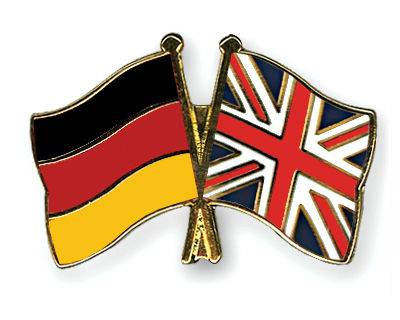Cultural Tips on Doing Business in Germany for British Exporters
In January 2014 I participated at the event ‘Doing Business in Germany’ hosted by UKTI (UK Trade & Investment) in Bristol.
This event was held due to the upcoming German trade fair Hannover Messe and CeBIT to enable UK businesses to see the export opportunities available.
These two events are the national hub when it comes to exporting new technology, products and services to Germany and neighbouring countries in Europe.
As culture is one of the most influencing factors when doing business abroad, I was asked to give a presentation on German Business Culture.
Understanding business culture and the behaviour of any country can make a significant difference and can be a decisive factor for the sucess or failure of international encounters and negotiations.
This also applies to interactions between countries that may seem relatively similar at first glance (as they are both in Europe for instance) such as the UK and Germany.
It can be difficult to realise that we view everything through a ‘cultural lens’ and compare everything to our own culture.
When doing business abroad, understanding this fact becomes crucial as it impacts our approach to meetings, presentations, negotiations and rhythm of business, processes and expectations. These are simply different – not better or worse.
I shared a few tips at the event on how to deal with the UK-German differences and for doing business with German counterparts.
Meeting and Greeting
• Greeting follows a protocol, which demonstrates respect for your counterparts.
• Always address business partner with their title Frau (Ms. / Mrs.) or Herr (Mr.) in oral communication, unless you are advised to do otherwise. Using the informal ‘Du’ instead of the formal ‘Sie’ can take several years – even between close colleagues.
• In written communication, make use of additional formal title (Dr./ Eng./ etc.).
General Business Etiquette
• General business etiquette is what UK counterparts would categorise as rather formal – from business dress to dining and gift giving etiquette.
• It is always beneficial to be able to speak basic German. This demonstrates that you make an effort in communicating with your business partners. After all, they will speak English most of the time as well.
Business Meetings
• Yes, Germans are punctual. As a sign of respect and valuing the time of your business partner, try to be on time and give notice if you are going to be late.
• Meetings have an official character, and conversation will get ‘straight down to business’. However, you might have the chance to socialise afterwards.
• German counterparts tend to seek for long-term business relationships. Keep this in mind and give time to build up trust and a positive reputation.
Negotiations and Decision Making
• Decisions of negotiations are made on the basis of facts and figures presented. Make sure that you have all relevant information at hands as decisions are not likely not be reviewed.
• Use an interpreter for business negotiations to avoid misunderstandings on both sides.
• Have all documents translated into German – legally binding documents are too important to get ‘lost in translation’.
These are only a few hints and tips for initial interaction with German business partners.
If you would like to have some more detailed information, check out our in-depth Country Profile on Germany.
One final thought - remember to stay flexible in the way you do business and give everyone the benefit of the doubt. This is the best recipe for successfully doing business abroad.
Related Posts
By accepting you will be accessing a service provided by a third-party external to https://www.commisceo-global.com/

 +44 0330 027 0207 or +1 (818) 532-6908
+44 0330 027 0207 or +1 (818) 532-6908
